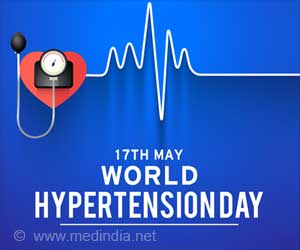- Obsessive-compulsive disorder(OCD) is linked to a heightened risk of mortality
- Causes of OCD-led death include natural triggers– metabolic, digestive, nervous, and respiratory diseases; unnatural triggers– suicide and accident
- Effective therapies that enhance OCD sufferer’s mental health can reduce their mortality rate
All cause and cause specific mortality in obsessive-compulsive disorder: nationwide matched cohort and sibling cohort study
Go to source).
Hidden Truths of Mental Health Problems
Psychiatric disorders encompass a diverse range of mental health conditions affecting thoughts, emotions, and behaviors, for example, depression, anxiety disorders, schizophrenia, bipolar disorder, and post-traumatic stress disorder (PTSD).These disorders often result from a complex interplay of genetic, biological, environmental, and psychological factors, presenting symptoms such as persistent sadness, excessive worry, hallucinations, mood swings, and impaired cognitive function.
Psychiatric disorders significantly impact an individual's daily life, relationships, and overall well-being. Treatment approaches involve psychotherapy, medications, and lifestyle interventions, underscoring the importance of a holistic approach to mental health care.
Did You Know?
1 in 40 Americans suffer from OCD, with women afflicted more frequently than men by almost three times.
All About Obsessive Compulsive Disorder
OCD is a chronic psychiatric disorder affecting approximately two percent of the population. It is characterized by intrusive thoughts, urges, or images triggering high levels of anxiety(obsessions) and repetitive behaviors or rituals aimed at neutralizing these distressing feelings (compulsions). OCD is associated with academic underachievement, poor work prospects, alcohol and substance use disorders, and an increased risk of death.Common obsessions include fears of contamination, harm to oneself or others, or fears of making a mistake. Compulsions often manifest as repetitive actions like washing, checking, or counting. Individuals with OCD may struggle to control these thoughts and behaviors, leading to distress and impaired daily functioning, with anxiety intensifying when compulsions are resisted.
Read More to Know About: “OCD can Put You at Risk of Ischemic Stroke”
OCD's Fatal Impact: Study Reveals Higher Mortality Risk
According to the recent study, individuals with obsessive-compulsive disorder may face a higher risk of death from both natural and unnatural causes compared to those without the condition.The study utilized data from various Swedish population registers, identifying 61,378 people with OCD and matching them (1:10) with 613,780 individuals without OCD based on sex, birth year, and county of residence. Additionally, a sibling group of 34,085 people with OCD and 47,874 without OCD was included.
The study revealed that individuals with OCD had a higher overall death rate compared to matched individuals without OCD (8.1 versus 5.1 per 1,000 person-years, respectively). The excess risk of death was notable for both natural (31% increased risk) and, particularly, unnatural causes of death (a threefold increased risk).
Among natural causes of death, individuals with OCD faced increased risks related to:
- Respiratory system diseases (73%)
- Mental and behavioral disorders (58%)
- Diseases of the genitourinary system (55%)
- Endocrine, nutritional, and metabolic diseases (47%)
- Diseases of the circulatory system (33%)
- Nervous system (21%)
- Digestive system (20%)
In conclusion, individuals with OCD, grappling with persistent, intrusive thoughts and engaging in repetitive behaviors, face higher overall death rates. The broader impact of OCD-related behaviors on mortality highlights the development of comprehensive approaches and effective interventions to improve the mental well-being and longevity of those affected by this challenging disorder.
Reference:
- All cause and cause specific mortality in obsessive-compulsive disorder: nationwide matched cohort and sibling cohort study - (https://www.bmj.com/content/384/bmj-2023-077564)
Source-Medindia














